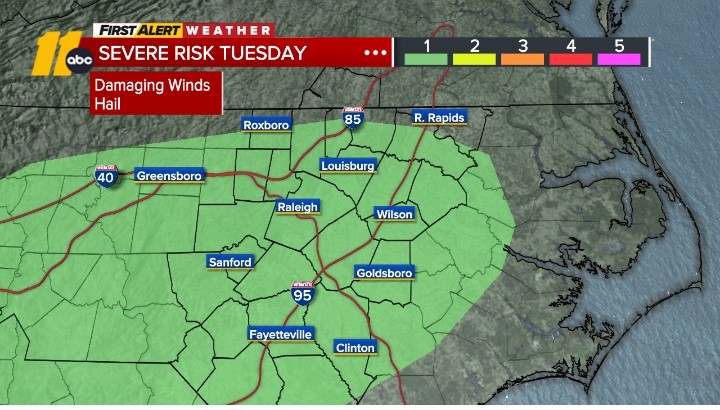Where can you get a COVID-19 vaccine in NC? Tracking availability and progress

Read more about the state's priority groups here.
NCDHHS' Your Spot, Your Shot information
A look at the phases of the vaccination schedule in North Carolina:
Group 1: Health care workers fighting COVID-19 & Long-Term Care staff and residents
Health care workers with in-person patient contact
Long-term care staff and residents-people in skilled nursing facilities, adult care homes and continuing care retirement communities
Group 2: Older adults
Anyone 65 years or older, regardless of health status or living situation
Group 3: Frontline essential workers
The CDC defines frontline essential workers as workers who are in sectors essential to the functioning of society and who are at substantially higher risk for exposure to COVID-19
Group 4: Adults at high risk for exposure and increased risk of severe illness
Anyone 16-64 years old with high-risk medical conditions that increase risk of severe disease from COVID-19 such as cancer, COPD, serious heart conditions, sickle cell disease, Type 2 diabetes, among others, regardless of living situation
Anyone who is incarcerated or living in other close group living settings who is not already vaccinated due to age, medical condition or job function
Essential workers not yet vaccinated. The CDC defines these as workers in transportation and logistics, water and wastewater, food service, shelter and housing (e.g., construction), finance (e.g., bank tellers), information technology and communications, energy, legal, media, public safety (e.g., engineers) and public health workers
Group 5: Everyone who wants a safe and effective COVID-19 vaccination
FAQs
Which chronic conditions put someone at increased risk for severe illness from COVID-19, making them a higher priority for vaccination?
The CDC defines the chronic medical conditions that put someone at higher risk of severe illness from COVID-19. Currently, the list includes cancer, chronic kidney disease, COPD (chronic obstructive pulmonary disease), heart conditions (heart failure, coronary artery disease, cardiomyopathies), immunocompromised state (weakened immune system) from solid organ transplant, pregnancy, sickle cell disease, smoking, and type 2 diabetes mellitus.
How will I know when it's my turn to get a vaccine?
How will I know when it's my turn to get a vaccine?
Those most at risk get it first. YourSpotYourShot.nc.gov is updated regularly with information about who can currently get vaccinated. Talk with your health care provider or employer about where your spot is based on your health and job status. How quickly North Carolina moves through each phase will depend on the available vaccine supply. Currently, supplies are very limited. The federal government notifies states weekly of how much vaccine they will receive. We find out the week before how many doses of each vaccine we will receive for the following week. This makes it difficult to know when we will move to the next phase.
Where will I be able to get vaccinated?
Where will I be able to get vaccinated?
Currently, supplies are very limited. Right now, very few vaccine doses are available. If it is your turn, your local health department or hospital can help you get your shot. Because supplies are very limited, most doctors cannot provide vaccinations in their offices.
As vaccines become more widely available, vaccinations will be offered to everyone who wants one in clinics and pharmacies, as well as vaccination events in communities. We will continue to expand the available sites so that people have a spot where they can easily get their vaccine. Information on where to take your shot against COVID-19 is available at YourSpotYourShot.nc.gov.
When it's your turn, you can get your shot from any local health department in the state, no matter where you live.
Do I need to sign up to get vaccinated?
For people in the first group (Phase 1a), your health care employer, local health department, or long-term care facility will register you for the vaccine. You should follow the instructions they give to you. At this time, you may be registered through your employer for Phase 1a, you can also schedule at a site providing vaccinations to get registered when it is your turn in the prioritization groups. Learn how to find your spot to get your shot at https://covid19.ncdhhs.gov/findyourspot.
Will I need to sign a consent form to get vaccinated?
You can provide verbal consent. Written consent is not generally required, but some providers may require or request written consent.
Does the state require or mandate vaccination?
No. North Carolina has no plan to require people to be vaccinated against COVID-19. It is possible that some employers or schools will require vaccines for their employees or students.
How much will the vaccines cost?
There is no cost. They are free to everyone, even if you don't have health insurance. The federal government is covering the cost. Administration fees will also be covered for those who are uninsured and should be covered by all health insurance companies.
How do I report an adverse reaction caused by the COVID-19 vaccine?
CDC and FDA encourage the public to report possible side effects (called adverse events) to the Vaccine Adverse Event Reporting System (VAERS) This national system collects data to look for adverse events that are unexpected, appear to happen more often than expected, or have unusual patterns of occurrence. Reports to VAERS help CDC monitor the safety of vaccines. Safety is a top priority.
CDC is also implementing a new smartphone-based tool called v-safe to check-in on people's health after they receive a COVID-19 vaccine. When you receive your vaccine, you should also receive a v-safe information sheet telling you how to enroll in v-safe. If you enroll, you will receive regular text messages directing you to surveys where you can report any problems or adverse reactions you have after receiving a COVID-19 vaccine.
If two shots are necessary, how will people know when to get their second shot?
North Carolina will use a secure data system called the COVID-19 Vaccine Management System (CVMS) to make sure you are safe and get your second shot at the right time. When a person gets the first shot, they get information on when to come back for the second and they are asked to make a second appointment. People will also be given a card with information about which vaccine they got for their first dose and the date of that shot. Keep the card in a safe spot and take a picture of it just in case it gets misplaced. People will receive an email notification with a reminder for the second shot. Individuals who choose to use V-SAFE, a CDC tool to provide personalized health check-ins after their shot, will receive text reminders for their second dose. The provider who gave the vaccine may also help with reminders for the second shot. State and federal privacy laws make sure none of your private information will be shared. The shot you take and when you need the second is confidential health information that is carefully managed to protect your privacy.











